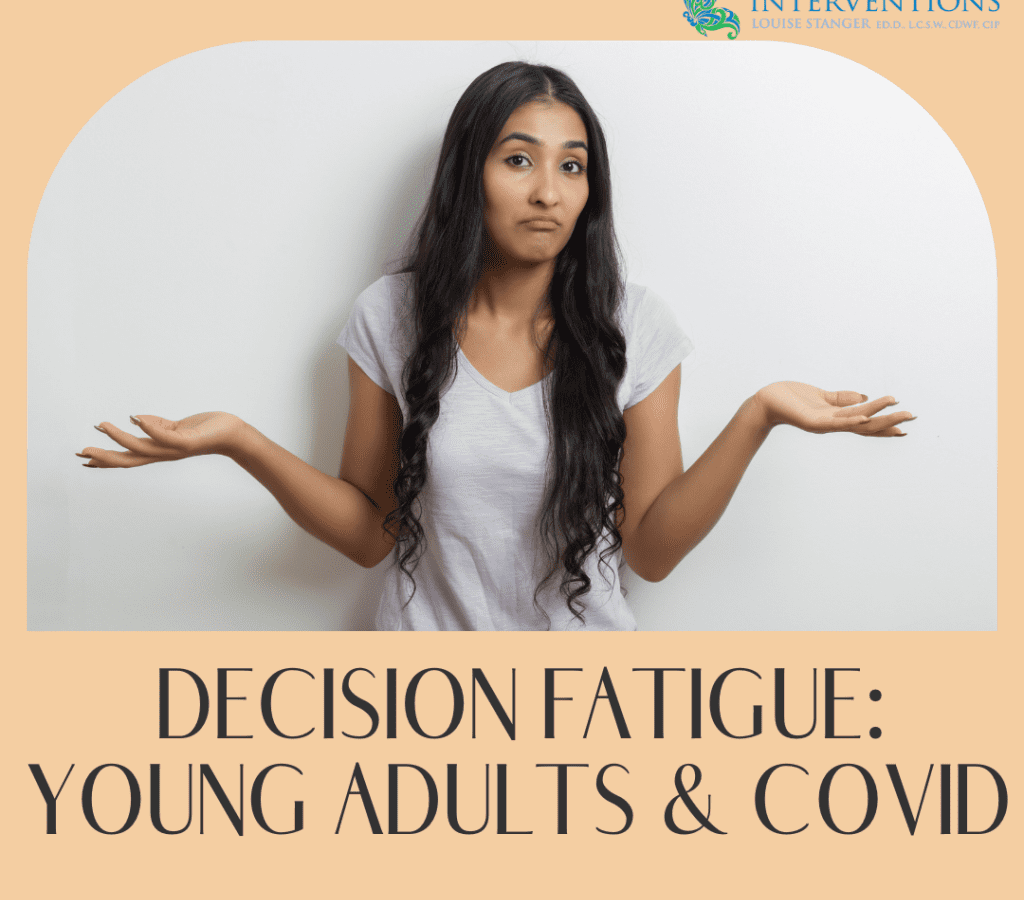How many of you are having trouble making decisions? While this past year may have felt as though we had less choices, the truth is that many of us have experienced change fatigue. That’s because every day seemed to bring a new command or a new normal. All of this was complicated by intense feelings of frustration and exhaustion as well. In other words, we have been experiencing decision fatigue for a some time now.
What Is Decision Fatigue?
Decision fatigue is defined as mental overload from having to make stressful choices. Even the simplest questions such as what to have for dinner, what time is best to go to the grocery store, how to do homework, how to engage with friends; all have become treacherous brain exercises of which we want to make wise decisions. Yet, the stress often inhibits us from acting.
Many parents have called me during this past year about their sons’ and daughters’ inability to make decisions or even leave their rooms. The symptoms range from:
Irritability -flying off the handle at the slightest provocation
Impulsivity – engaging in high risk behaviors, oftentimes thru the internet or exiting their room like fire breathing dragons or mountain lions
Avoiding choices – therefore choosing not to choose.
Anxiety, Depression Headaches, Stomach Aches – these and other physical issues
Along with these behaviors, parents often report an increased use of marijuana and an increased use in drugs like Adderall. For young adults, making designs can be especially challenging. While they are struggling to achieve independence, they find themselves stuck at home and not sure where they are headed next.
How To Help Decision Fatigue
If your teen or young adult is having difficulty making decisions, here are some suggestions:
- Check what their prescription or non-prescription drug use is or is not.
- If they are seeing a professional, make sure that as a parent you have a progress-only consent form signed so that you can talk with their providers. Make sure you have this consent no matter if your your adult is 18 year or older. As long as you are their major source of funding, this communication is vital.
- Acknowledge what is going on right now – that decisions are becoming difficult. Use eye witness accounts so that your young adult knows what decisions you are talking about.
- Help establish criteria on what needs to be decided. Weigh the pros and cons.
- Commit to making life simpler, perhaps reducing decisions or think ahead and anticipate decisions that may have to be made (take a gap year, apply for school, apply for a job, etc).
There is also a significant difference between a young adult experiencing decision fatigue and those who fail to launch altogether. If you’re a parent who’s struggling to understand what is happening with your young adult, contact me today. We can start with a simple conversation to uncover the healing solution best for your family.


